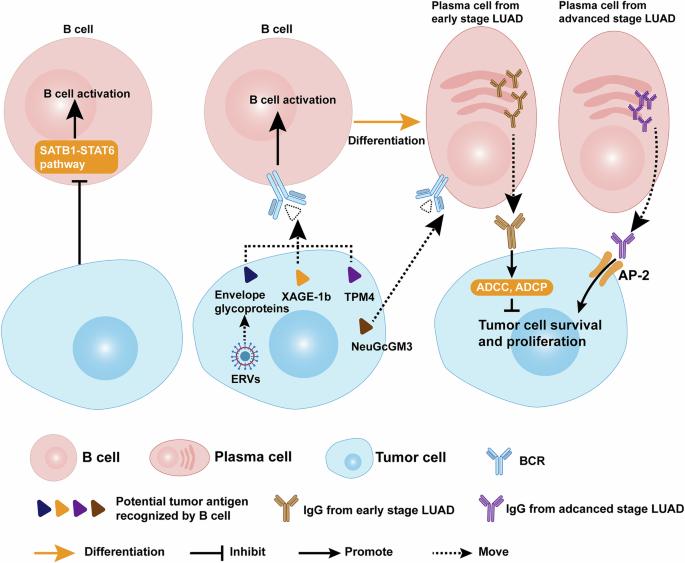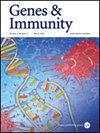The role of B cell immunity in lung adenocarcinoma
IF 4.5
3区 医学
Q1 GENETICS & HEREDITY
引用次数: 0
Abstract
Lung cancer is the deadliest cancer globally. Non-small cell lung cancer (NSCLC), including adenocarcinoma, squamous cell carcinoma, and large cell carcinoma, constitutes a significant portion of cases. Adenocarcinoma, the most prevalent type, has seen a rising incidence. Immune checkpoint inhibitors (ICIs) have improved outcomes in lung adenocarcinoma (LUAD), yet response rates remain unsatisfactory. PD-1/PD-L1 inhibitors are primary ICIs for LUAD, targeting the PD-1/PD-L1 pathway between CD8+ T cells and tumor cells. However, LUAD presents a “cold tumor” phenotype with fewer CD8+ T cells and lower PD-1 expression, leading to resistance to ICIs. Thus, understanding the function of other immune cell in tumor microenvironment is crucial for developing novel immunotherapies for LUAD. B cells, which is part of the adaptive immune system, have gained attention for its role in cancer immunology. While research on B cells lags behind T cells, recent studies reveal their close correlation with prognosis and immunotherapy effectiveness in various solid tumors, including lung cancer. B cells show higher abundance, activity, and prognostic significance in LUAD than that in LUSC. This review summarizes the difference of B cell immunity between LUAD and other lung cancers, outlines the role of B cell immunity in LUAD.

B细胞免疫在肺腺癌中的作用。
肺癌是全球最致命的癌症。非小细胞肺癌(NSCLC),包括腺癌、鳞状细胞癌和大细胞癌,构成了病例的很大一部分。腺癌是最常见的类型,发病率也在上升。免疫检查点抑制剂(ICIs)改善了肺腺癌(LUAD)的预后,但反应率仍然不令人满意。PD-1/PD-L1抑制剂是LUAD的主要ICIs,靶向CD8+ T细胞与肿瘤细胞之间的PD-1/PD-L1通路。然而,LUAD呈现“冷肿瘤”表型,CD8+ T细胞较少,PD-1表达较低,导致对ICIs产生耐药性。因此,了解肿瘤微环境中其他免疫细胞的功能对于开发新的LUAD免疫疗法至关重要。B细胞是适应性免疫系统的一部分,因其在癌症免疫学中的作用而受到关注。虽然对B细胞的研究落后于T细胞,但最近的研究表明,B细胞与包括肺癌在内的各种实体肿瘤的预后和免疫治疗效果密切相关。B细胞在LUAD中比在LUSC中表现出更高的丰度、活性和预后意义。本文综述了LUAD与其他肺癌的B细胞免疫差异,概述了B细胞免疫在LUAD中的作用。
本文章由计算机程序翻译,如有差异,请以英文原文为准。
求助全文
约1分钟内获得全文
求助全文
来源期刊

Genes and immunity
医学-免疫学
CiteScore
8.90
自引率
4.00%
发文量
28
审稿时长
6-12 weeks
期刊介绍:
Genes & Immunity emphasizes studies investigating how genetic, genomic and functional variations affect immune cells and the immune system, and associated processes in the regulation of health and disease. It further highlights articles on the transcriptional and posttranslational control of gene products involved in signaling pathways regulating immune cells, and protective and destructive immune responses.
 求助内容:
求助内容: 应助结果提醒方式:
应助结果提醒方式:


